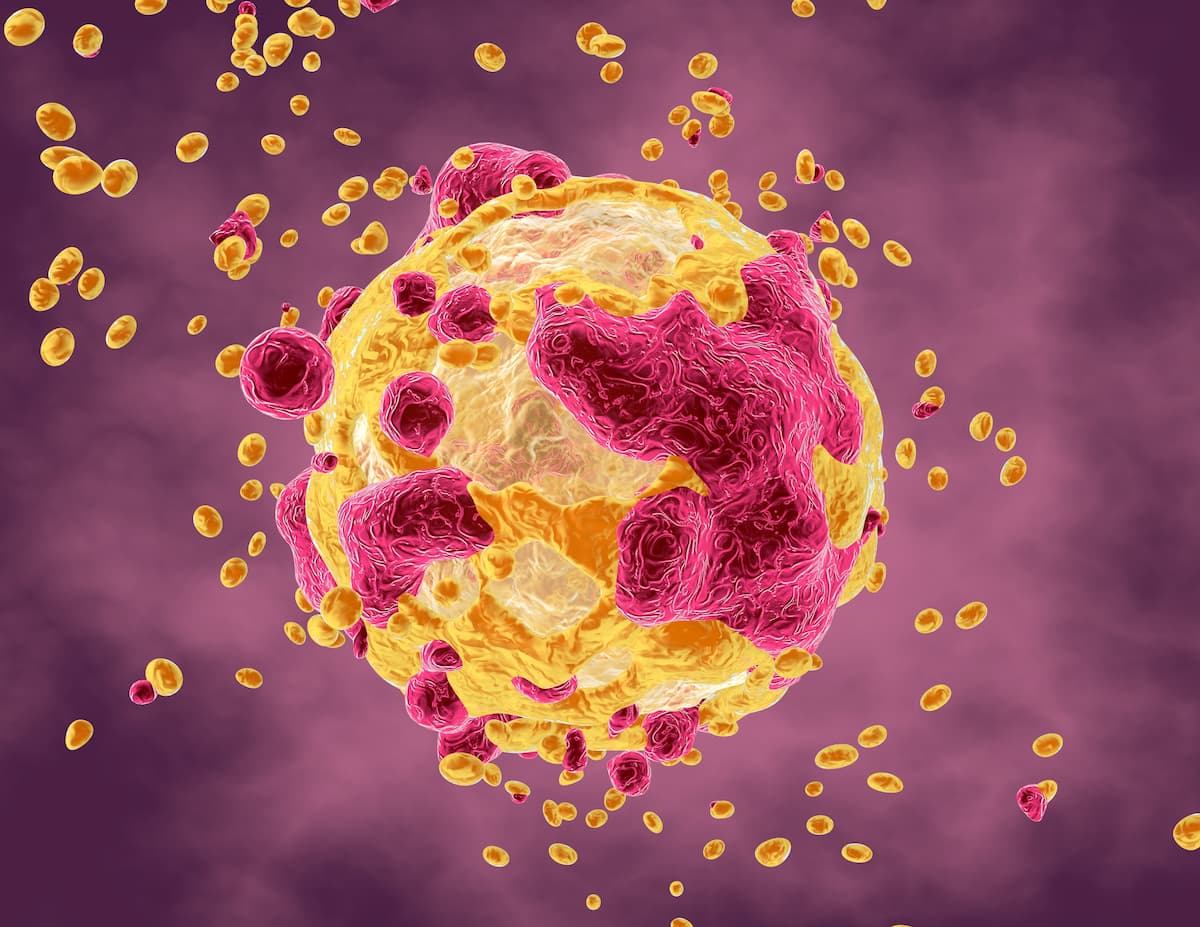EMA Validates Marketing Application for Nirogacestat in Desmoid Tumors
Findings from the phase 3 DeFi trial support the marketing authorization application for nirogacestat as a treatment for adult patients with desmoid tumors in the European Union.
"These results support that nirogacestat will be a practice-changing therapy if approved by the EMA," according to Bernd Kasper, MD, PhD.

The European Medicines Agency (EMA) has validated a marketing authorization application for the oral gamma secretase inhibitor nirogacestat (Ogsiveo) as a treatment for adult patients with desmoid tumors, according to a press release from SpringWorks Therapeutics, the developers of the agent.1
Nirogacestat would become the first treatment to receive marketing authorization for managing desmoid tumors if the EMA proceeds with the approval.
Supporting data for the marketing application in this indication came from the phase 3 DeFi trial (NCT03785964).
According to findings published in The New England Journal of Medicine, the estimated median progression-free survival (PFS) was not estimable (NE) with nirogacestat compared with 15.1 months (95% CI,8.4-NE) among patients who received placebo; the experimental agent yielded a 71% reduction in the risk of disease progression or death (HR, 0.29; 95% CI, 0.15-0.55; P <.001).2 The confirmed objective response rate (ORR) was 41% vs 8% in each respective arm (P <.001), with complete responses (CRs) occurring in 7% and 0%. Additionally, the median time to a confirmed first response was 5.6 months vs 11.1 months, respectively.
Treatment with nirogacestat in the DeFi trial correlated with significant improvements in patient-reported outcomes (PROs) such as pain (P <.001), tumor-specific symptoms (P <.001), physical and role functioning (P <.001), and overall health-related quality of life (P ≤.01). Overall, 95% of adverse effects (AEs) in the nirogacestat arm were grade 1/2, and the most common toxicities included diarrhea (84%), nausea (54%), fatigue (51%), and hypophosphatemia (42%). Investigators concluded that nirogacestat demonstrated a manageable safety and tolerability profile.
“Desmoid tumors can have a significant impact on patients’ lives and there is a pressing need for a new treatment for patients in Europe,” principal investigator Bernd Kasper, MD, PhD, a professor at the University of Heidelberg, Mannheim Cancer Center, Mannheim, Germany, said in the press release.1 “In the DeFi trial, nirogacestat demonstrated significant improvements across [PFS], [ORR], and [PROs], and had a safety profile that supports long-term dosing. These results support that nirogacestat will be a practice-changing therapy if approved by the EMA.”
In the DeFi trial, patients were randomly assigned 1:1 to receive oral nirogacestat at 150 mg or a matched placebo twice a day as part of 28-day cycles. Study treatment continued until disease progression, intolerable toxicity, or patient withdrawal.
The trial’s primary end point was PFS based on RECIST v1.1 criteria. Secondary end points included ORR and changes in PROs such as pain, symptoms, physical functioning, and role functioning.
Patients 18 years and older with histologically confirmed, progressive desmoid tumors based on RECIST v1.1 guidelines were able to enroll on the trial. Additional eligibility criteria included having no prior treatment for progressing disease not amenable to surgery or recurrent or refractory disease following 1 or more prior lines of treatment.
“The validation of our marketing authorization application is an important step towards bringing nirogacestat to patients with desmoid tumors in the European Union who currently do not have an approved therapy,” Saqib Islam, chief executive officer at SpringWorks, said.1 “We look forward to working with the EMA on this important submission.”
The FDA approved nirogacestat as a treatment for patients with progressing desmoid tumors in November 2023.3 Supporting findings for the approval came from the DeFi trial.
“I think the most important thing that comes out of having a second active drug and the first-FDA approved drug for the treatment of desmoid tumors is that patients have choices,” study author Brian Van Tine, MD, PhD, a professor of medicine in the Division of Oncology, Section of Medical Oncology at Washington University School of Medicine Siteman Cancer Center, said in an interview with CancerNetwork® ahead of the United States approval.
“Sorafenib [Nexavar] is a drug that you have to use carefully because you can get rashes on your hands and feet; you have some tolerance for nausea and some tolerance for fatigue. Nirogacestat has a different adverse effect profile…. There may be a selective advantage for one drug or over the other depending on a patient-centered discussion of which drug they'd like to try.”
References
- SpringWorks Therapeutics announces European Medicines Agency validation for marketing authorization application of nirogacestat for the treatment of adults with desmoid tumors. News release. SpringWorks Therapeutics, Inc. February 29, 2024. Accessed February 29, 2024. http://tinyurl.com/yzz53n8f
- Gounder M, Ratan R, Alcindor T, et al. Nirogacestat, a γ-secretase inhibitor for desmoid tumors. N Engl J Med. 2023;388(10):898-912. doi:10.1056/NEJMoa2210140
- FDA approves nirogacestat for desmoid tumors. News release. FDA. November 27, 2023. Accessed February 29, 2024. https://tinyurl.com/3zezwe53
Sarcoma Awareness Month 2023 with Brian Van Tine, MD, PhD
August 1st 2023Brian Van Tine, MD, PhD, speaks about several agents and combination regimens that are currently under investigation in the sarcoma space, and potential next steps in research including immunotherapies and vaccine-based treatments.